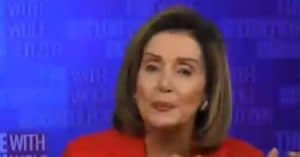Trump seeks Supreme Court help to halt Venezuelan deportation relief
Buckle up, folks—President Trump is taking the fight over Venezuelan migrant protections straight to the highest court in the land. The administration is asking the Supreme Court to override lower court rulings that have kept a Biden-era deportation relief program alive, despite repeated efforts to shut it down. It’s a classic clash of judicial power versus executive authority, with hundreds of thousands of lives hanging in the balance.
The core of this saga is the Trump administration’s push to end Temporary Protected Status (TPS) for over 300,000 Venezuelan migrants, while also terminating similar protections for Syrians, even as lower courts stand in the way.
This battle has been simmering for months in the judicial system. The TPS program, designed to shield citizens from countries in turmoil—like Venezuela, still mired in political chaos—grants deportation reprieves, work permits, and some taxpayer-funded benefits. Homeland Security, under Secretary Kristi Noem, argues that the sheer volume of unauthorized migration demands a hard rethink of these policies.
Supreme Court Caught in Judicial Tug-of-War
Initially, the Supreme Court blocked a district court’s preliminary injunction that forced the president to maintain TPS for Venezuelans. But then, California Judge Edward Chen, an Obama appointee, threw a curveball with a new summary judgment ordering the program to continue. Apparently, Judge Chen thinks the Supreme Court’s ruling was just a polite suggestion, not a mandate.
Solicitor General D. John Sauer isn’t buying it, accusing Chen of ignoring the Supreme Court’s clear signal that the government is likely to win this case. Sauer pointed out that Chen’s latest order rests on the same shaky legal footing as the one previously stayed. It’s almost as if some judges are playing a game of judicial whack-a-mole with the administration’s policies.
The 9th U.S. Circuit Court of Appeals has backed Chen’s rulings, while Chen himself admitted he expects another appeal. Meanwhile, lower court judges have grumbled about the challenge of interpreting the Supreme Court’s interim rulings, which often lack full opinions. If only clarity were as easy to come by as a court filing.
Venezuelan TPS Under Fire Amid Controversy
Critics, including immigration advocacy groups, have slammed Secretary Noem’s attempt to end TPS for Venezuelans as discriminatory and unlawful. Judge Chen even agreed, suggesting racial bias tainted the decision-making process. But let’s be honest—policy disagreements shouldn’t automatically equate to personal prejudice; sometimes, tough calls are just about numbers and national priorities.
Homeland Security insists Venezuela’s ongoing upheaval doesn’t justify endless extensions of TPS when border security and resource allocation are stretched thin. It’s a fair point: Temporary means temporary, not a backdoor to permanent residency. Still, for the 300,000 Venezuelans affected, this isn’t just policy—it’s their livelihood on the line.
On the same day as the Supreme Court filing, Secretary Noem also dropped a bombshell by ending TPS for Syrians, a program in place since 2012 and last renewed under Biden. Syrians with TPS now have just 60 days to pack up and leave. It’s a stark reminder that executive decisions can shift lives overnight.
Syrian TPS Termination Sparks Debate
Assistant Secretary Tricia McLaughlin defended the move, stating, “Syria has been a hotbed of terrorism and extremism for nearly two decades.” She argued it’s against national interest to keep Syrians here under TPS, emphasizing the program’s temporary nature. But is this really about security, or just a convenient pivot to tighten immigration controls?
McLaughlin also claimed conditions in Syria have improved enough to no longer warrant TPS for those without other legal status. That’s a bold assertion, given Syria’s lingering instability, and it’s hard not to wonder if this is more about sending a message than reflecting reality on the ground.
For Syrians affected, 60 days is a brutal timeline to uproot their lives. National security is paramount, no question, but there’s a human cost to these decisions that deserves more than a press release. Compassion and pragmatism shouldn’t be mutually exclusive, even in a conservative playbook.
Policy Clash Reflects Broader Immigration Divide
This dual fight over TPS for Venezuelans and Syrians underscores a deeper divide over immigration policy in America. On one side, there’s a push for stricter enforcement and redefined priorities; on the other, a call to protect vulnerable populations from returning to dangerous homelands. Both sides have merit, but only one can shape policy at a time.
The Supreme Court’s next move could set a precedent for how much leeway the executive branch gets in reshaping programs like TPS. If lower courts keep playing hardball, we’re in for a long judicial standoff, with real people caught in the crossfire. Turns out, actions—or in this case, rulings—have consequences.
For now, all eyes are on the justices to see if they’ll deliver the clarity lower courts seem to crave. Until then, Venezuelan and Syrian migrants wait, their futures hinging on a legal chess game far beyond their control. It’s a tough spot, and no amount of witty commentary can soften that reality.




